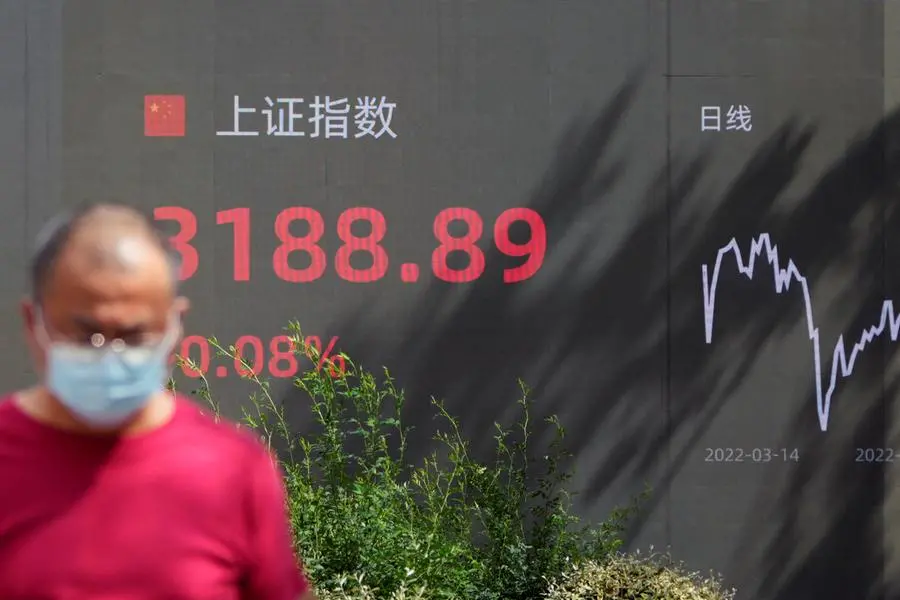PHOTO
China's efforts this week to put a floor under its tumbling stock market have eased market concerns around a potential implosion of an estimated $27 billion of "Snowball" structured products and other forms of leveraged bets.
The benchmark CSI300 Index has rallied 3% from Monday's 4-1/2-year lows after state fund Central Huijin Investment started buying exchange-traded funds (ETFs) and the government approved extra sovereign borrowing to stimulate a frail economy.
Snowball is a distinct and popular Chinese market derivative that offers bond-like coupons to investors as long as the underlying assets in the product trade within a specified range.
It gained popularity in 2021, as the pandemic and weak economy forced brokerages and investors to get into innovative structured products betting on market volatility.
A Snowball typically has a knock-in level, and brokers need to liquidate their hedges which are usually long positions in stock index futures, if the stock market falls to that level.
China International Capital Corp (CICC) estimated in a report on Tuesday that some Snowball products tied to the CSI Smallcap 500 Index had gradually entered the knock-in level.
The investment bank estimated the average knock-in level for Snowball products tied to CSI500 is 4,865. The index seemed to be closing in on that level on Monday, when it hit a low of 5,269 after losses of 18% since early April. It has since rebounded.
"If there is no policy to boost sentiment after stocks slump, investors would panic," said Dong Baozhen, chairman at Beijing Lingtongshengtai Asset Management. "The pessimism might trigger bigger panic."
The CSI 500 and CSI 1000, the two most popular underlying indexes for Snowball, are down roughly 6% each so far this year.
While worries over a major liquidation of stocks triggered by Snowball may have receded, analysts say there is still danger in a lot of other structured products actively traded in China.
Snowball derivatives with the CSI 1000 Index as its underlying index have an average knock-in level at 4,997, CICC estimates, roughly 15% below the 5,916 level at Friday's close.
CICC also estimates the current amount outstanding in Snowball products is 200 billion yuan ($27.33 billion), and that the knock-in impact on stock futures would be contained.
China's securities watchdog had in the past tightened scrutiny on Snowball and other derivative products, to maintain stock market stability.
($1 = 7.3167 Chinese yuan) (Reporting by Jason Xue in Shanghai and Tom Westbrook in Singapore Editing by Vidya Ranganathan and Simon Cameron-Moore)





















